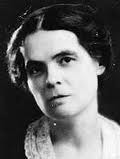A Quote by William Shakespeare
Related Quotes
Behind joy and laughter there may be a temperament, coarse, hard and callous. But behind sorrow there is always sorrow. Pain, unlike pleasure, wears no mask. ... For this reason there is no truth comparable to sorrow. There are times when sorrow seems to me to be the only truth. Other things may be illusions of the eye or the appetite, made to blind the one and cloy the other, but out of sorrow have the worlds been built, and at the birth of a child or a star there is pain.
I think that taking life seriously means something such as this: that whatever man does on this planet has to be done in the lived truth of the terror of creation, of the grotesque, of the rumble of panic underneath everything. Otherwise it is false. Whatever is achieved must be achieved with the full exercise of passion, of vision, of pain, of fear, and of sorrow. How do we know, that our part of the meaning of the universe might not be a rhythm in sorrow?
Recently, one friend asked me, "How can I force myself to smile when I am filled with sorrow? It isn't natural." I told her she must be able to smile to her sorrow, because we are more than our sorrow. A human being is like a television set with millions of channels. If we turn the Buddha on, we are the Buddha. If we turn sorrow on then we are sorrow. If we turn a smile on, we really are the smile. We can not let just one channel dominate us. We have the seed of everything in us, and we have to seize the situation in our hand, to recover our own sovereignty.






































